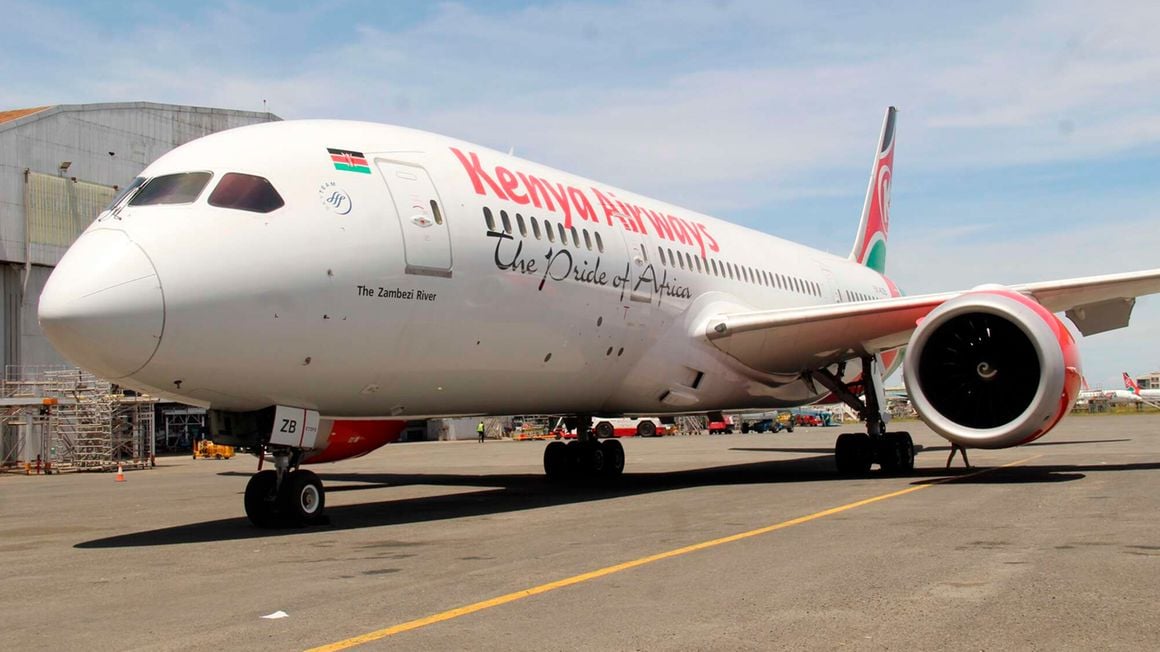Aviation
Sh187.7 billion debt Worries buyers of KQ equity stakes

The heavy debt load of the national carrier has caused concern among potential investors for the proposed Kenya Airways (KQ) equity stake sale, making it the biggest challenge for the airline in its search for buyers.
KQ managers who have made several scouting trips to evaluate the appeal of the company’s equity offer in the US, China, and the Middle East informed Parliament that they have some leads but no firm commitments as of yet.
“All the potential investors we spoke to agreed that the fundamentals of the company are very strong. Their concern was on the debt level and that’s why a good strategy would be reducing the company’s debt to get extra funding into the company,” KQ CEO Allan Kilavuka told the National Assembly Public Debt and Privatization Committee on Monday.
The airline’s management also disclosed that it was seeking a financial advisor to assist in creating an investor memo that would serve as a guide for choosing the preferred investor or investors.
The government’s exposure to risk and expense should decrease with the entry of a strategic investor.
The decision on a financial advisor will be made using KQ’s internal procurement procedures, and it is anticipated to be finalized in December.
To help the struggling airline return to profitability, President William Ruto of Kenya led a delegation to Washington in December with a pitch to sell a controlling interest in KQ.
The government’s push to find a strategic investor in KQ coincides with the Exchequer pausing its bailouts of the carrier in the fiscal year beginning July 1.
KQ owed creditors Sh187.74 billion ($1.347 billion) as of the end of May, including the Tsavo facility in the amount of Sh61.4 billion ($439.8 million), which was connected to the carrier’s purchase of six Boeing 787-8 aircraft and one Boeing 777-300 ER aircraft and one Genx engine in 2012.
KQ failed to make payments on the facility, which led to the government taking on the guaranteed debt. At the end of March 2023, the Exchequer had cleared Sh10.1 billion.
The Exchequer has additionally guaranteed KQ borrowing from nine local banks totalling Sh31.4 billion ($225 million), which was obtained in November 2017 at the conclusion of the company’s most recent restructuring and is being used to finance working capital.
In addition to the guaranteed facilities, KQ also owes Sh22.9 billion to crucial suppliers, such as airport authorities, handling firms, and aircraft fuellers, whose failure to pay would severely impair the airline’s ability to operate.
In addition, KQ owes syndicates Sh13.7 billion ($98 million) for the purchase of 10 Embraer e-jets. This debt is known as the Samburu facility, and if it is not repaid, the carrier’s fleet will be grounded.
KQ acknowledged that the syndicate had issued it with a number of moratoria, preventing the realization of the contingency risk.
Since the airline was restructured in 2017, the government is also owed Sh58.7 billion ($420.5 million) in additional support by the airline.
Due to KQ’s significant leverage, the company has been able to continue operations. In the year ended December 2022, the group’s and company’s total liabilities exceeded their respective total assets by Sh108.1 billion and Sh105.2 billion.
Due to higher forex losses and higher fuel costs, KQ experienced a wider loss during the same time period, rising from Sh15.9 billion in 2021 to Sh38.3 billion.
Any new strategic investor(s) in the company are likely to have the treatment of the company’s debt as one of their top concerns, with any further debt restructuring likely to have an impact on the carrier’s control.
For instance, in 2017, the conversion of Sh23.3 billion ($167 million) in debt to equity resulted in a new shareholding of 38.1 percent for 10 local banks, including Equity, KCB, Co-operative, CBA, NIC, SBM, DTB, NBK, I&M, and Ecobank.
Through a similar conversion, the government’s own ownership of KQ rose from 26.7 percent to 48.9 percent.
The KQ management maintains that the recapitalization of the carrier still comes first, despite concerns about the company’s debt treatment. Following this, the government and other creditors may choose to implement new debt-to-equity switches.
“The airline is significantly undercapitalised and that’s why the quest for capitalisation by either government or strategic equity is important. If that money comes and the airline is healthy, the government can convert that debt or request the strategic investor to pay off the debt,” said Mr Kilavuka.
Project Kifaru, KQ’s most recent operational review, is supported by the company’s new capitalization.
Beyond the sale of equity stakes, the plan calls for network and fleet optimization, cost-cutting initiatives, negotiations of collective bargaining agreements, and the expansion of partnerships through partnerships with rival carriers on the continent.








